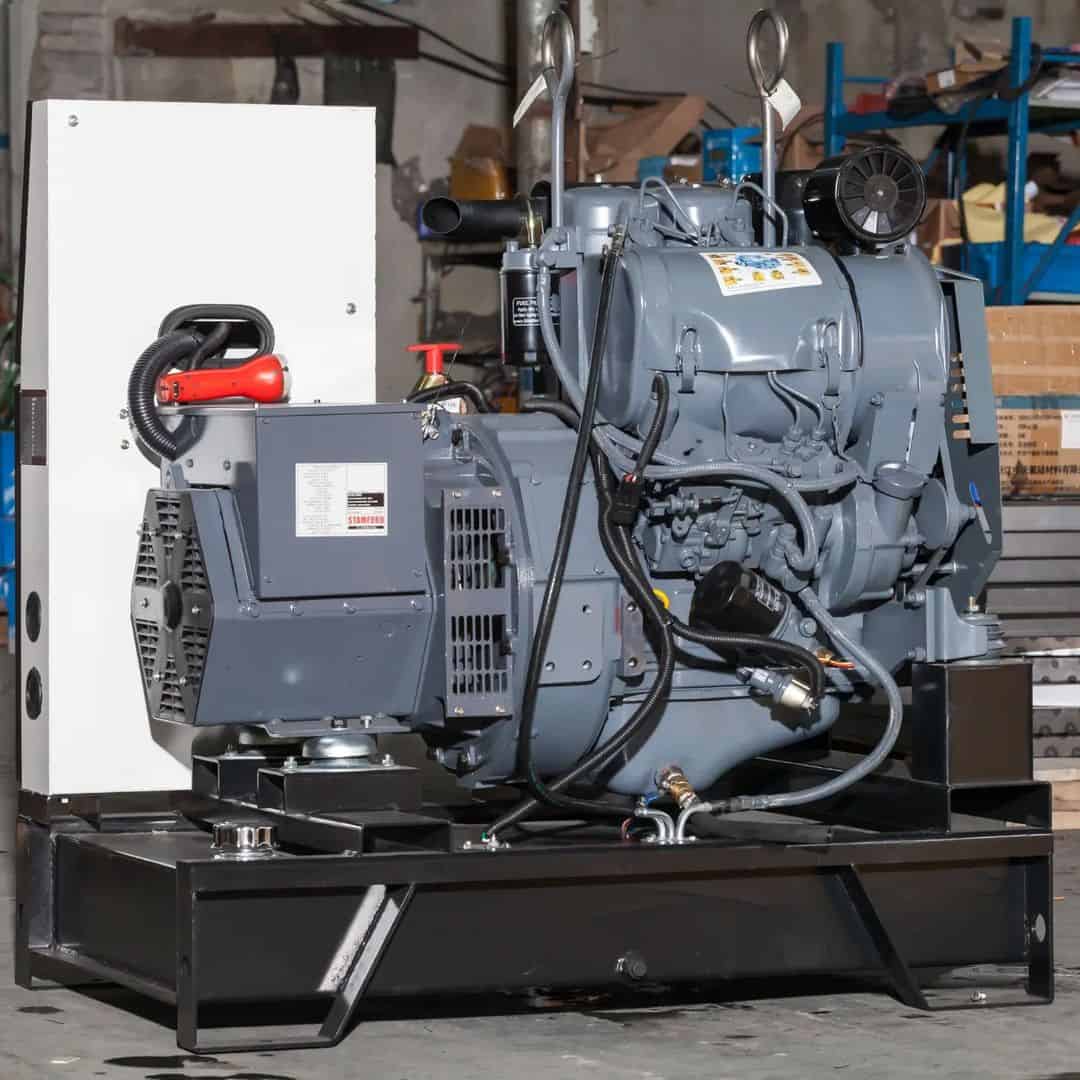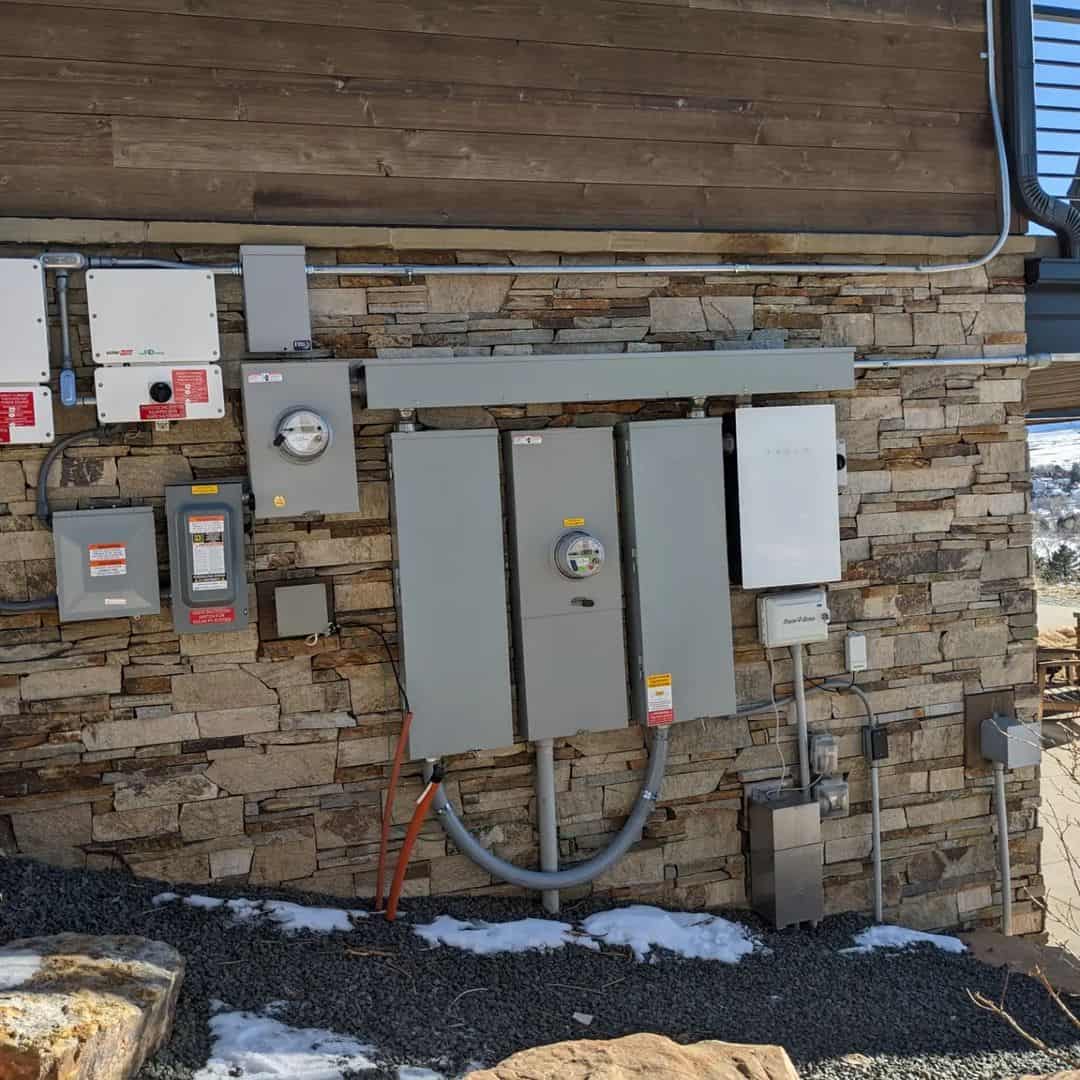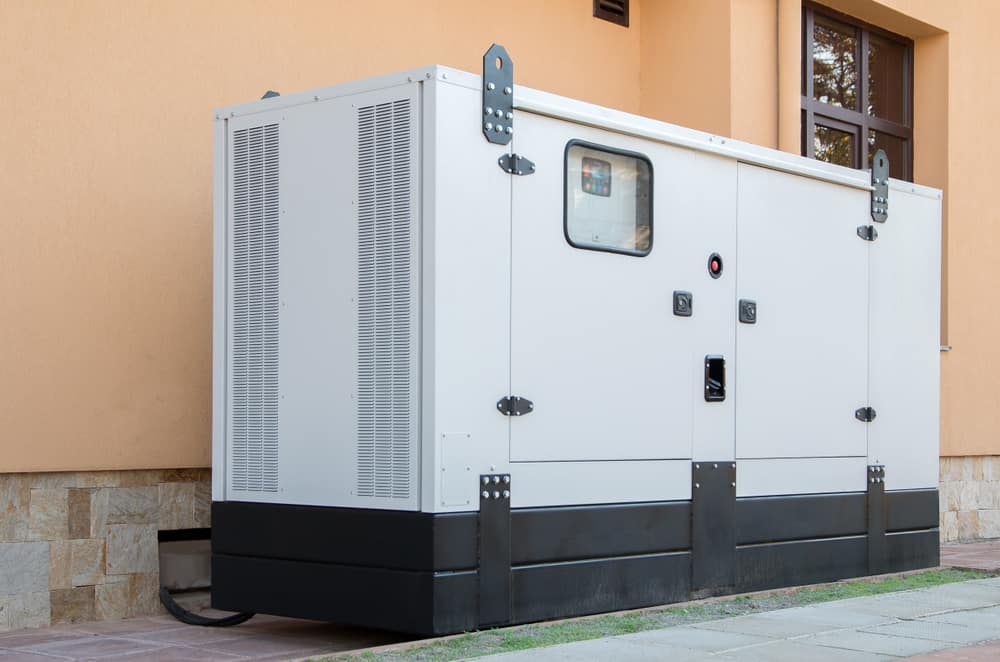Like the Boy Scouts motto, “be prepared”, having a backup power source for your building is non-debatable. The question remains: Which is the better option, generators or batteries?
This guide will answer questions about the better of the two by identifying the benefits and drawbacks of these two backup power sources. In addition to this, we will also discuss the different types available. By the end of this piece, you’ll be able to choose which of these two power sources is best for your backup power needs.
Table of Contents
Generator Vs. Battery: Which is Better?
What Are Generators?

For a long time, generators have remained the popular alternative power source for homes, industries, and companies.
This alternative is powered by fossil fuels like diesel, liquid propane, natural gas, and, more recently, solar energy. They can be turned on either manually by using an ignition key or automatically through ATS (Automatic Transfer Switch) technology that automatically detects when there is a power outage.
When dealing with generators, it is crucial that you know that they have an average life span of 10,000 to 30,000 hours and will require routine maintenance, thus ensuring that it powers on when it performs their intended function.
1. Types of Generators
To help you understand generators better, it’s crucial that you get familiar with the different types of generators available.
- Standby Generators
Standby generators are so-called because they possess an automatic transfer switch that activates after a power outage. These generators are a backup power source in buildings where prolonged power outages might spell doom.
This generator type’s preferred fuel source is either diesel or natural gas and you’ll find them installed permanently on-site and, as such, cannot be easily moved. Finally, it’s worth knowing that several standby generators are programmed to run automatic self-tests to prevent disappointment when power outages occur.
- Portable Generators
Although several portable generators are gasoline-powered, it is not uncommon to find slightly larger inverters that run on diesel, natural gas, or liquid propane. A standard portable generator will function for about 10-15 hours and can power 120-240 voltage appliances.
To get the best out of portable generators, you must select the required size based on the wattage of the appliances you aim to power. Portable generators can withstand very harsh conditions; as the name suggests, they are portable and compact.
- Inverter Generators
Although inverter generators are gasoline-powered and have several characteristics similar to portable generators in many ways, these generators are only suitable for powering smaller appliances. They rarely power any appliance above 120 volts.
Inverter generators fit perfectly in cars or RVs due to their compact size. In addition, they are very good at conserving energy since they only run at the same rate as the appliance they power.
2. Pros and Cons of Generators

As expected, generators have advantages and disadvantages, which you must consider before deciding your preferred generator type. Here are some of these pros and cons.
Pros
- Switching back and forth from the national grid to generator power is quite easy.
- Generators can power essential appliances in homes, like freezers and heaters.
- Fuel in the generator can last a few days before you need to refill it again.
- Several generator types are affordable.
- Generators are available in varying sizes, so you can choose which suits you best.
- Connecting a generator to an existing natural gas line is easy.
Cons
- Constant refueling can become expensive
- Generators can be a source of noise pollution
- The emission created during operation makes it less eco-friendly
- Without proper maintenance, you risk possible disappointment during power outages
What Are Batteries?
Invented by Volta in the year 1800, batteries have come a long way. They store electricity that can be used to power buildings and several devices. Many can be charged directly through the main electricity grid or through solar power harnessed using solar panels.
To ensure that you get the best from your batteries, investing in an inverter that converts DC power to AC is paramount; this way, power losses will be greatly minimized.
Battery systems require very little maintenance and servicing compared to several other mechanical power sources. The best part is that with batteries, you can go off-grid completely.
To achieve this, it is best to use the excess power from your solar panels during the peak demand period, when the sun is out. This way, you have fully charged batteries when the sun’s intensity is down.
Although acquiring powerful batteries to power a whole building will cost you about $3000-$5000, in the long run, if you regularly have to battle power outages and outrageous electricity tariffs, choosing batteries as your source of power might be the way to go.
1. Types of Batteries

Familiarizing yourself with the different types of batteries available today is crucial when deciding what power option is best for your needs. Below are two different battery types.
- Lithium Ion Batteries
Lithium-ion batteries are, without a doubt, the most eco-friendly option available today. They help maximize your power usage and are touted to last longer than expected. Moreover, their installation process is pretty straightforward. Once installed, all you need to do is place them in a very easy location to monitor. This could be the garage, meter lines, or somewhere outdoors.
- Lead Acid Batteries
These batteries are similar to car batteries and are more common with the off-grid solar panel system. They are known for their ability to store excess power. While Lithium-ion focuses on maximizing power along with your meter line, lead acid batteries focus on a completely off-grid system.
An example of a battery to consider is the Tesla Powerwall battery best for people that already have a solar panel in their homes. This is a suitable battery option if you do not want to put all your hopes on the grid.
2. Pros and Cons of Batteries
Like generators, batteries also have pros and cons you must consider before making your decision.
Pros
- Batteries offer a more silent operative process
- They function on clean energy harnessed using solar panels or wind turbines.
- They require low-maintenance
- Batteries have a long lifespan
- In California, some systems are eligible for state and federal tax credits
- Battery systems are environmentally friendly
Cons
- They have a higher upfront cost
- The backup power source for solar battery systems is limited.
The Battery and The Generator: A Direct Comparison
We’ve reviewed these two sources of power- batteries, and generators. It is time to compare them and see which trumps the other.
1. Cost
Before deciding on either batteries or generators, one major factor to consider is the cost. So, which will cost you more? First of all, going by installation cost, backup batteries cost between $28,000-$40,000, while a generator that is adequate for a typical family house will cost $9,000-$12,000.
This would seem like the front-end cost of acquiring a battery is more than that of a generator. However, maintenance, testing, and fuel costs will set in after getting the generator, making the generator the less cost-effective option.
2. Reliability
The fact that generators require extra attention reduces their reliability as a backup power source. This is because you never know what can go wrong. An example is the state of New Jersey turning off the natural gas line after hurricane Sandy and leaving many without electricity in 2012.
Furthermore, fuel scarcity and a hike in the prices of PMS could hit at any time, and this would mean that there would be no way to power your generator, leaving you disappointed. On the flip side, batteries aren’t affected by situations like this.
Additionally, as opposed to the 5-year warranty common with generators, you have the option of a 10-year warranty with batteries.
3. Load Carrying Ability
Regarding load-carrying capacity, generators trump batteries as they can power heavier loads since they can mimic direct electricity sources. As long as the rating matches the loaded appliances and devices, you should have little to no issues powering your home.
On the other hand, home batteries do not do well with large loads and are suitable for powering only a handful of devices.
4. Environmental Implications
Environmental pollution is a big topic in today’s world and it’s crucial you consider the effect of your backup power source on your environment. Backup generators cause pollution through carbon dioxide emitted into the environment during operation.
They produce dirt that adds to climate change along with the smell from the diesel fumes that fill the air and is not only harmful to you but also to the environment. Noise from these generators also does not help this situation.
However, unlike these backup generators, solar energy provides a clean source of energy that is not harmful to the environment.
Final Thoughts
Deciding on what backup power option to choose between the generators and batteries depends on what power source you need and your overall preference.
Consider generators if you are looking for an additional power source, do not have or plan to install solar panels, and happen to live in a home with an already existing natural gas line. However, consider batteries if you have installed solar panels and only need batteries to complete the power source. It is also best to go completely off-grid and have a clean power source.
